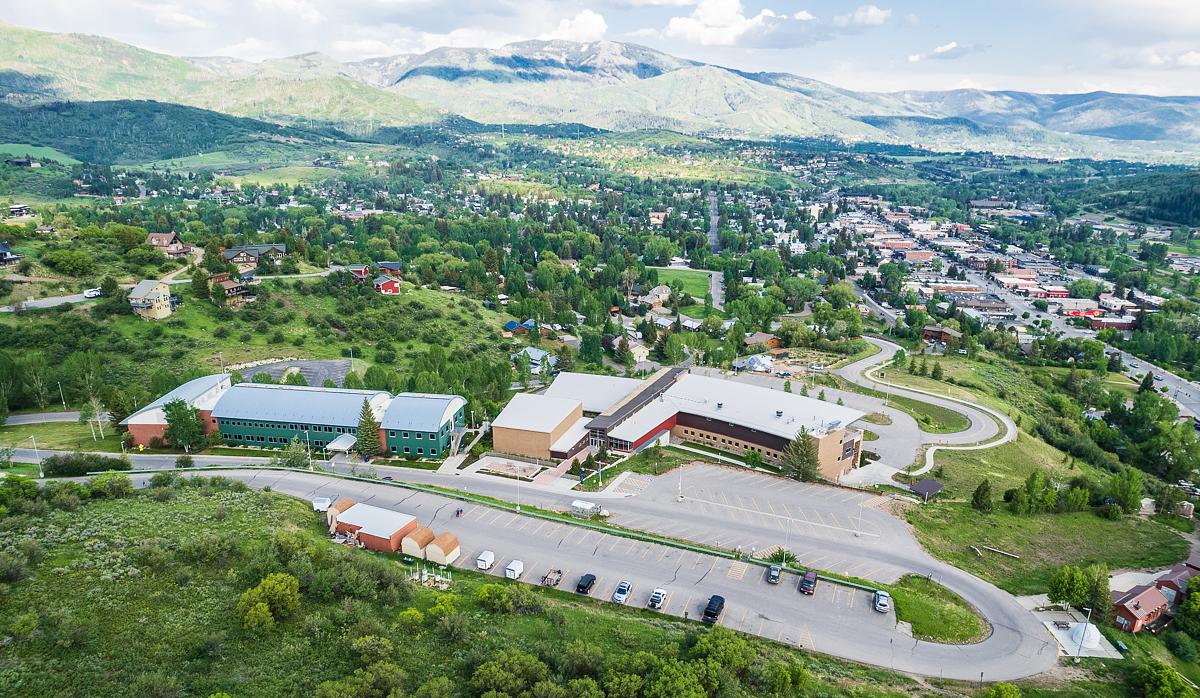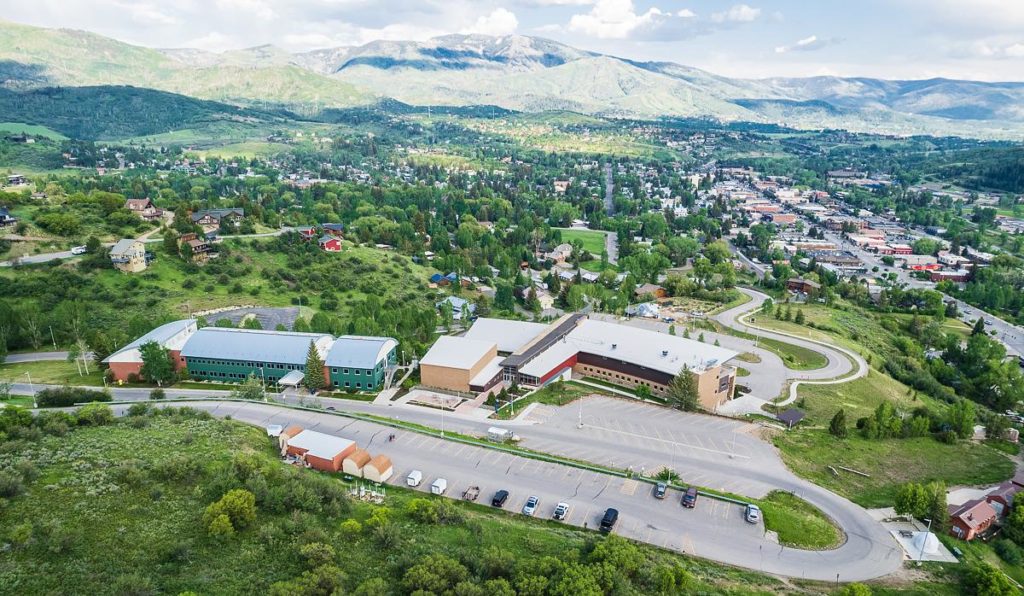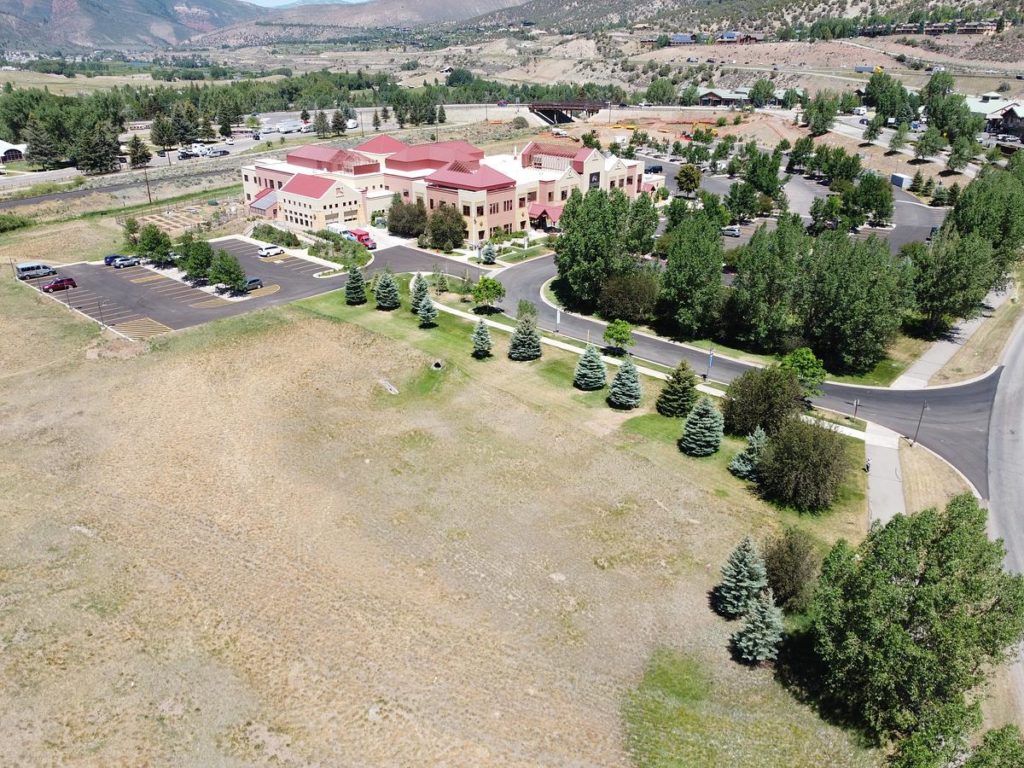On June 22, the Colorado Mountain College Board of Trustees announced a $40 million housing initiative that will bring apartment-style student housing to four of its campuses.
CMC campuses in Breckenridge, Edwards at Vail Valley, Spring Valley at Glenwood Springs and Steamboat Springs are each slated for 38 units (with approximately 50-60 beds) of on-campus housing with the potential to add units in the future. These campuses were selected based on anticipated student demand, escalating housing scarcity in these high-cost mountain resort communities and the availability of CMC-owned land in these locations.
The plan for the new apartments is based, in part, on CMC’s experiences with a similar residential project for students adjacent to its Breckenridge campus. New
apartments will be designed primarily for upper-division students who reside and work in mountain communities year-round and are finishing their degrees.
Plans call for a variety of one bedroom and studio apartments. Residents will sign 12-month leases and reside on campus year-round. Rent prices will be offered at an attainable price point, likely 10% to 15% below market rates.
“Local housing is becoming out of reach for CMC students, who are often working and contributing to our local mountain communities and economies,” noted CMC President Dr. Carrie Besnette Hauser. “The pandemic has made this challenge even more acute,” she added.
“Our goal is to provide affordable housing that allows CMC students to focus on their studies, graduate and be qualified for good jobs in our communities,” Hauser said.
Challenges related to affordable housing
Lack of affordable housing affects many aspects of the college experience. Though Colorado Mountain College maintains very affordable tuition and fees, housing is the single largest part of a student’s college costs.
“It’s so important to keep the pathways to higher education barrier free in our communities,” said Chris Romer, CMC trustee for Eagle County who is also president and CEO of the Vail Valley Partnership. “That pipeline from high school to college to careers is central to a healthy economy. We can’t continue to lose the best and the brightest because they can’t afford to live here.”
CMC students are often essential members of the local workforce. So, investments in year-round housing can help solve multiple community and regional needs. Adding to the inventory of student housing can relieve pressure on an already scarce and high-cost housing market, which helps people get a firm footing in the community to stay longer term. The college continues to consider and discuss housing solutions in other locations where it has campuses.
Timeline and partnerships
The board approved the issuance of $40 million in debt for the housing initiative at its May meeting. The college was able to qualify for financing due to low interest rates and its favorable Aa3 rating from Moody’s.
The college hopes to complete construction by June 2023 and open for leasing prior to the fall 2023 semester, while continuing to create avenues to address local housing challenges.
“CMC is exploring potential partnership opportunities and keeping a close eye on state and federal grant and stimulus programs,” explained Hauser. “If we can leverage our projects to provide additional relief to the housing crises in our communities, we will consider it.”
Other board actions
At the final meeting of the 2020-21 fiscal year, CMC trustees passed a balanced operating budget of $76.4 million, with an expected 2.93% increase in expenditures compared to the current year. The budget includes a 3% cost-of-living increase for employees, aligned with the anticipated rate of inflation.
Finally, the board approved President Carrie Besnette Hauser’s 2021-22 goals, which serve as the collegewide workplan for the upcoming year and extended her contract through 2024-25.




